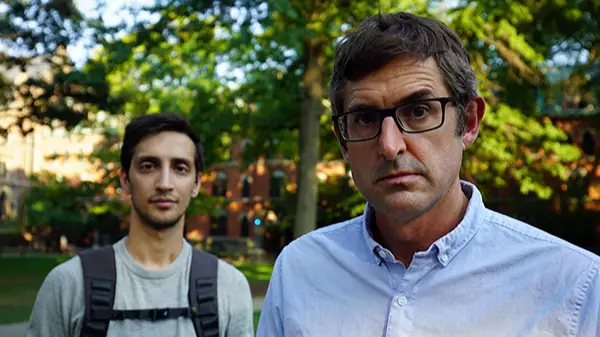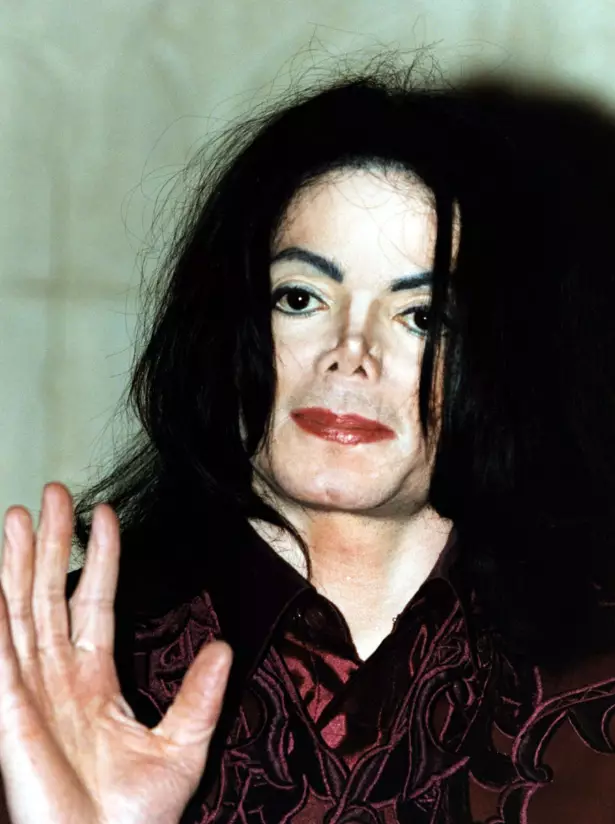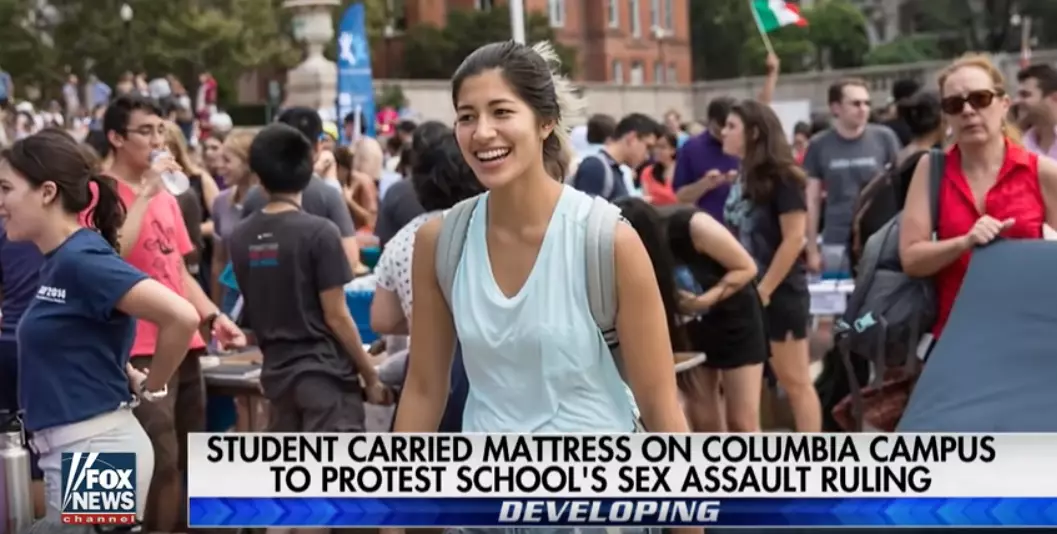
In the wake of the world's revolutionary Me Too movement, in which victims of sexual assault were given a global platform to discuss their experiences, Louis Theroux has decided the time is now right to turn the campaign on its head - deflecting the attention back onto the alleged perpetrators as part of new documentary, The Night in Question.
Honing in on the 'them' instead of the 'me' behind the movement, the new film sees Theroux visit American college campuses to speak to students accused of sexual assault.
The spotlight focuses mainly on the story of Saif Khan, a neuroscience major who is accused of raping a fellow student.
While Saif has been found not-guilty in a court of law, his university decided to investigate the claims separately, amid increasing government pressures on US colleges to enforce a stricter code of sexual conduct among students.
"He was found not guilty in a court of law, but what we come to realise is that that's not the end of it, and nor should it be really," Theroux told LADbible.
As Saif continuously pleads his innocence, Theroux is drawn into a complex world where separating fact from fiction becomes more and more difficult.
"There are two difference standards. There's a criminal standard in which you go to prison, but just because you haven't been found guilty of a crime doesn't mean that you haven't done anything wrong - that you haven't made someone very uncomfortable and possible committed a gross violation."
It's a sentiment that doesn't just apply to the world of American universities, or what Theroux refers to as 'tribalistic' frat house culture, either.
"Jimmy Savile was never found guilty of anything in a court of law, but I think it's widely accepted - I certainly accept - that he was a serial predator and a sex offender.
"I believe that Michael Jackson was a paedophile. He was never found guilty in a court of law, so someone would come back to me and say 'Well he's innocent until proven guilty' - to which I would say 'Well, look, do some research and I think you'll find that the evidence is compelling'."

Also name-dropping the likes of R. Kelly, Bill Cosby and Harvey Weinstein, Theroux explained it's perhaps too simplistic to argue that we don't 'know' they've done anything, or to rely too heavily on the 'innocent until proven guilty' that the criminal system favours.
"If you take a criminal stand, until they're in court we may not know, but if you read enough stories - if you go deep enough into the research - I think you can form an educated opinion that they have done something."
With American universities able to conduct their own investigations into sexual assault, in turn requiring less stringent levels of proof than criminal cases do, some victims who might never get heard in a court of law are given another avenue for vindication.
But while some alleged perpetrators in the film feel the attempt to be more vigilant about rape and assault has turned into an overreaction or 'moral hysteria', one victim Theroux speaks to believes it's quite the opposite.
American artist and anti-rape activist Emma Sulkowicz, who made news headlines in 2014 for a performance art piece entitled Mattress Performance (Carry That Weight), has called for a view of rape that does not overly stigmatise perpetrators.
"I think a big reason why people try and avoid being called rapists is that they know this label's going to follow them for the rest of their lives," Sulkowicz says in the programme.
"That's so final. If we had a society in which people could be a rapist but then change, get better and learn from it, and stop being a rapist, people would be so much more willing to change themselves and reform."
Theroux admitted he initially found Sulkowicz's idea a strange concept, but said it was a 'logical consequence of the reality of how rape often takes place'.
"That was a really interesting point, and it took me a while to get my head around it," Theroux said.
"But what I take it to mean is that if you define rape very, very narrowly - as it was, someone being dragged behind a bush - it kind of gives license to anyone who sexually assaults someone in a way that's not as bad as that to sort of say 'Well, I'm not a rapist'.
"I think what Emma is saying is that we have to understand there are rapes that take place that people need to punish, but it shouldn't be stigmatising in as much as people should be allowed to come back from that.

Theroux continued: "I think some of the Me Too stuff has been mischaracterized as overly punitive by people who are more unfriendly to it, but I don't think that's necessarily how a lot of it intended.
"Certainly someone like Emma is not saying 'We need to lock up all these college students, or lock up every guy who has taken advantage, or taken liberties in bed, or oversteps the line in bed'; Emma's saying we need to be sensitive to that, we need to call it out and take measures, but to not necessarily custodial sentences."
At a time of increased scrutiny about what constitutes sexual assault, Theroux points us towards the consent classes many American universities run, where students are urged to use their 'common sense' in the bedroom.
"The phrase that gets used in America on campus is 'enthusiastic consent' or 'enthusiastic continuous consent'," Theroux explained.
"It's not like yes or no, it's not as though you get sign-off at the beginning of the night for everything that subsequently takes place in one signature; it's a continuing process."
While the conversation is far from over, maybe it's this objective common sense that might just be the only guaranteed way to help bring safety to what Theroux calls 'the most intimate frontier' that is the bedroom.
Louis Theroux: The Night in Question will air on BBC Two, Monday 4 March at 9pm and will be available on iPlayer.
Featured Image Credit: BBCTopics: TV and Film, Me Too, louis theroux, Michael Jackson